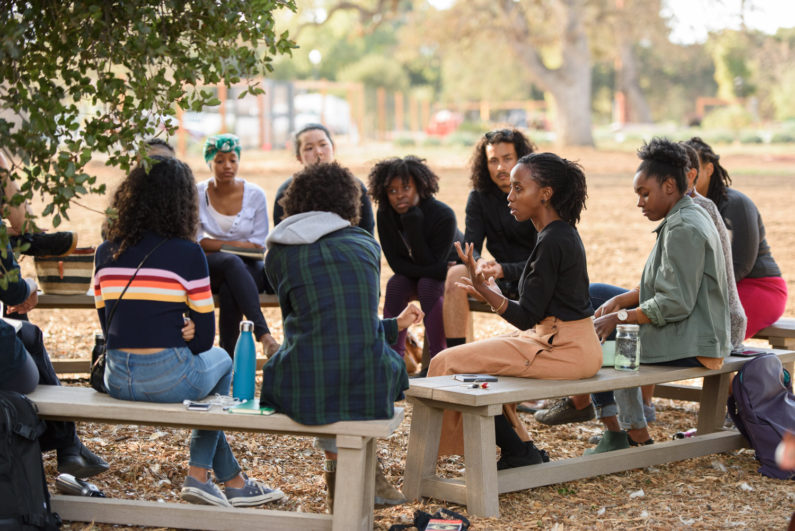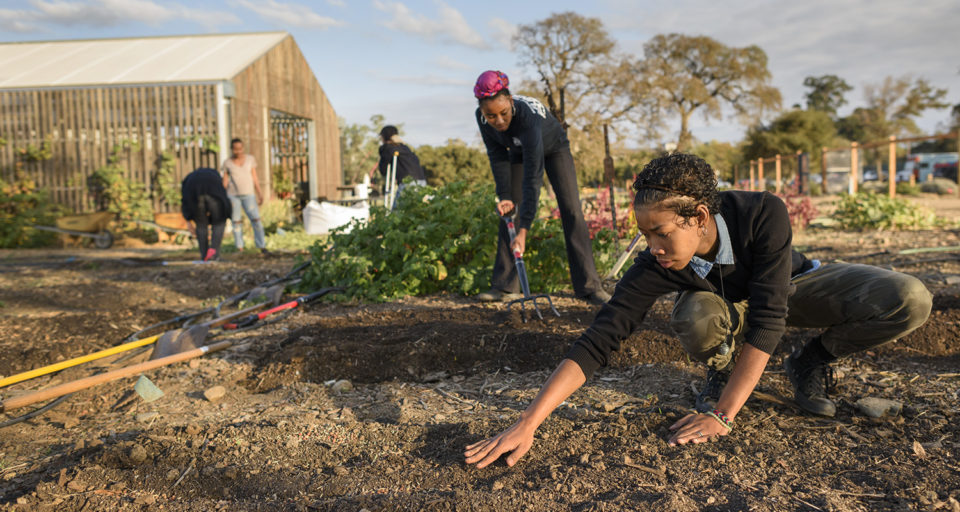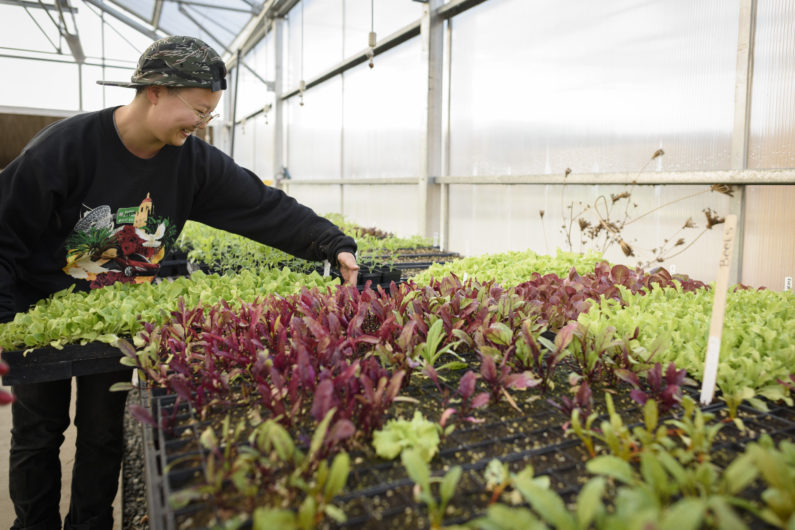New Stanford course empowers students to cultivate positive relationship with land
In a new course at the Stanford Educational Farm, students develop a positive relationship with the land through organic gardening while addressing the history of forced farm labor in the U.S. and its enduring, traumatic effects on communities of color.
When Stanford graduate student Darel Scott first stepped onto the O’Donohue Family Stanford Educational Farm, she was overwhelmed with uneasiness that was hard to explain.
Go to the web site to view the video.
As an African American woman whose family has lived in South Carolina for generations, Scott, who is majoring in Earth systems, an interdisciplinary environmental science program, couldn’t help but think about the way her ancestors were forced to cultivate land because of slavery.
That’s why last fall Scott helped assist with a new course that brought a group of students from diverse backgrounds onto the farm to explore similar complex experiences with land and agriculture. The students addressed those complicated emotions while also cultivating a positive, healing relationship with the land through new experiences within the course.
The course, called Liberation Through Land: Organic Gardening and Racial Justice, was cross-listed in the Comparative Studies in Race and Ethnicity and the Earth Systems programs.

Students meet under the oak trees with visiting alumni Brenda Mutuma and Makshya Tolbert at the beginning of class. (Image credit: L.A. Cicero)
Students learned about the history of land oppression in the United States and traditional land practices of indigenous people and other people of color. Alongside studying that history, students also experienced what it takes to start and maintain an organic, sustainable garden by sowing seeds, preparing garden beds, creating compost and harvesting crops at the farm. Students visited local organic gardens in the area, such as Collective Roots in East Palo Alto, as part of that hands-on learning experience.
“The history of dispossession and forced labor in this country means that many people of color encounter agricultural spaces as sites of trauma and oppression,” said Natasha Mmonatau, who instructed the course while finishing her master’s degree in environmental communication at Stanford. “Healing our relationship with land takes acknowledging that history but also revisiting spaces that might not be comfortable.”
Mmonatau designed the course with support from the Earth Systems program at Stanford’s School of Earth, Energy & Environmental Sciences, and with help from A-lan Holt, associate director of the Institute for Diversity in the Arts.
A major part of the course focused on creating positive experiences through farming. During one session, students cooked a communal pasta meal using harvested vegetables from the farm.
“We wanted to provide students with a safe environment to reclaim that space through new positive experiences with the land and the surrounding community,” Holt said. “It’s all about transforming something that feels violent into something that is peaceful once again.”
Students described the class as a spiritual and intellectually challenging experience.
Senior Maya Burke said she took the class because she hopes to pursue environmentalism and land justice issues once she graduates. She said the course challenged her thinking about land ownership.
“It was so impactful on the way that I see the world,” said Burke, who is majoring in comparative studies in race and ethnicity and minoring in history. “Beforehand, I kind of just accepted private property as this norm that we’ll have to accept as a society. This class challenged some of those thoughts, and it redirected the way that I think about issues like land rights and land struggles for different groups that are being displaced or encroached upon.”
Nya Hughes, a junior majoring in African and African American studies and communication, said the course helped transform her “very distant relationship with nature.”
Born and raised in New York City, Hughes said that the only greenery she saw was in Central Park. Being able to take a course that encouraged creating a positive relationship with land was very meaningful to her, she said.
“It was an incredibly thoughtful and eye-opening class,” Hughes said.
For one of the course assignments, Hughes interviewed her grandmother about her gardening hobby. Over the course of the interview, Hughes discovered her grandmother had lived on a farm when she was young, something Hughes did not know about.
“Talking to her about her experience with farming and how much meaning and purpose she found in it was very gratifying,” Hughes said. “As I learned for the first time how to do some of that work myself, I too started connecting to land in this wonderful way.”
The course is one of several that contributed to bringing hundreds of students to the Stanford Educational Farm since its opening in 2015. For more information, visit the farm’s website.


